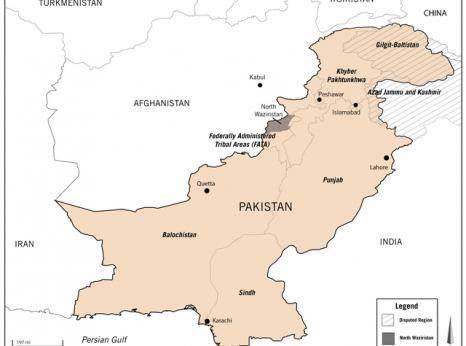Pakistan: Pakistani Held Incommunicado After Forced Deportation

On 27 January 2022, men who identified themselves as Dubai police and officials of the Security Industry Regulatory Agency showed up at the apartment building where Abdul Hafeez lived with his family in Dubai and asked the security guard of his whereabouts. They waited until he arrived home, stopped him at the gate and arrested him from the parking area.
Abdul’s family went to the Khawaneej Police Station to report his detention where they were only told to come later. On 31 January 2022, the police called them to ask for his passport. When pressed for more information, they denied having him in their custody.
According to his family, Abdul moved to Dubai in 2012 after he began facing threats to his life. His father was shot dead in February 2012 in Khuzdar, Balochistan. In October 2010, his younger brother was abducted allegedly by the country’s security agencies and his body was found two weeks later. In December 2018, Abdul’s cousin Rashid Hussain was commuting with three colleagues to his workplace when Emirati security forces detained him in Dubai. He was deported back to Pakistan a few weeks later, where he has not been heard from since. Rashid was declared the prime suspect in an armed attack on the Consulate of China in Karachi in 2018.
Extended incommunicado detention of this sort meets the principal international legal definition of enforced disappearance, contained in Article 2 of the International Convention for the Protection of All Persons from Enforced Disappearance. Neither Pakistan nor the UAE is a party to this treaty, but both are State Parties to the Convention Against Torture – and there are credible reports of the disappeared being subject to torture and other ill treatment). In addition, Pakistan has also ratified the International Covenant on Civil and Political Rights.
If there are criminal charges against Abdul Hafeez, either in Pakistan or the UAE, extradition or other legal proceedings against him must be held in public court proceedings with full respect for the right to fair trial, which includes confidential access to an attorney from the very outset of detention. Refoulement – the forcible return of a migrant who has a well-founded fear of persecution in his country of origin – is forbidden under international law.
The human rights crisis in Balochistan continues with reports of enforced disappearances and extrajudicial killings by the security forces of suspected Baloch militants and opposition activists who are accused by the government of terrorist activities. Amnesty International takes no position on the guilt or innocence of those alleged to have taken part in attacks characterized by governments as acts of terrorism. However, everyone must be able to enjoy the full range of human rights guaranteed under national and international law. Amnesty International denounces indiscriminate attacks and attacks targeting civilians carried out by armed groups, and fully recognizes the duty of the Pakistani authorities to prevent and punish crimes, including violent crimes such as acts of terrorism, and to bring to justice those suspected to be responsible for committing such crimes. However, by subjecting persons suspected of terrorist activities or links with terrorist groups to enforced disappearance, Pakistan has not only gravely violated their human rights but also failed in its duty to charge and try such individuals and to punish them if found guilty in a fair trial.